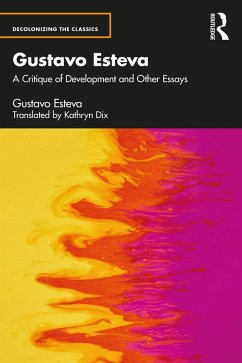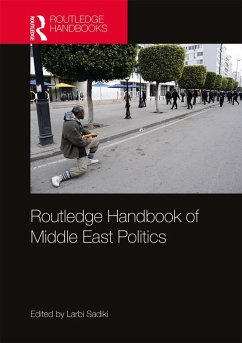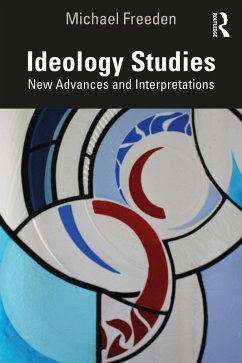
Dystopia in Arabic Speculative Fiction (eBook, PDF)
A Poetics of Distress
Versandkostenfrei!
Sofort per Download lieferbar
39,95 €
inkl. MwSt.
Weitere Ausgaben:

PAYBACK Punkte
20 °P sammeln!
Dystopia in Arabic Speculative Fiction: A Poetics of Distress unpacks the nuanced Arabic contribution to speculative fiction. Part of a larger project by Elmeligi to formulate a poetics of literary theory to read Arabic literature, this book examines Arabic dystopian fiction from the lens of social causes of psychological distress. The selected novels combine works by authors already established in studies by Western scholars and many that have not been translated before or have not received enough scholarly attention, yet. The novels represent an array of Arab countries, including Algerian, E...
Dystopia in Arabic Speculative Fiction: A Poetics of Distress unpacks the nuanced Arabic contribution to speculative fiction. Part of a larger project by Elmeligi to formulate a poetics of literary theory to read Arabic literature, this book examines Arabic dystopian fiction from the lens of social causes of psychological distress. The selected novels combine works by authors already established in studies by Western scholars and many that have not been translated before or have not received enough scholarly attention, yet. The novels represent an array of Arab countries, including Algerian, Egyptian, Jordanian, Kuwaiti, Mauritanian, Syrian, and Tunisian authors. It also highlights the contribution of women authors to Arabic speculative fiction. This book enriches the conversation about what is quite possibly a significant speculative fiction turn in the Arabic novel, as well as provides a new theoretical approach to read such complex and innovative literature.
Dieser Download kann aus rechtlichen Gründen nur mit Rechnungsadresse in A, B, BG, CY, CZ, D, DK, EW, E, FIN, F, GR, HR, H, IRL, I, LT, L, LR, M, NL, PL, P, R, S, SLO, SK ausgeliefert werden.













